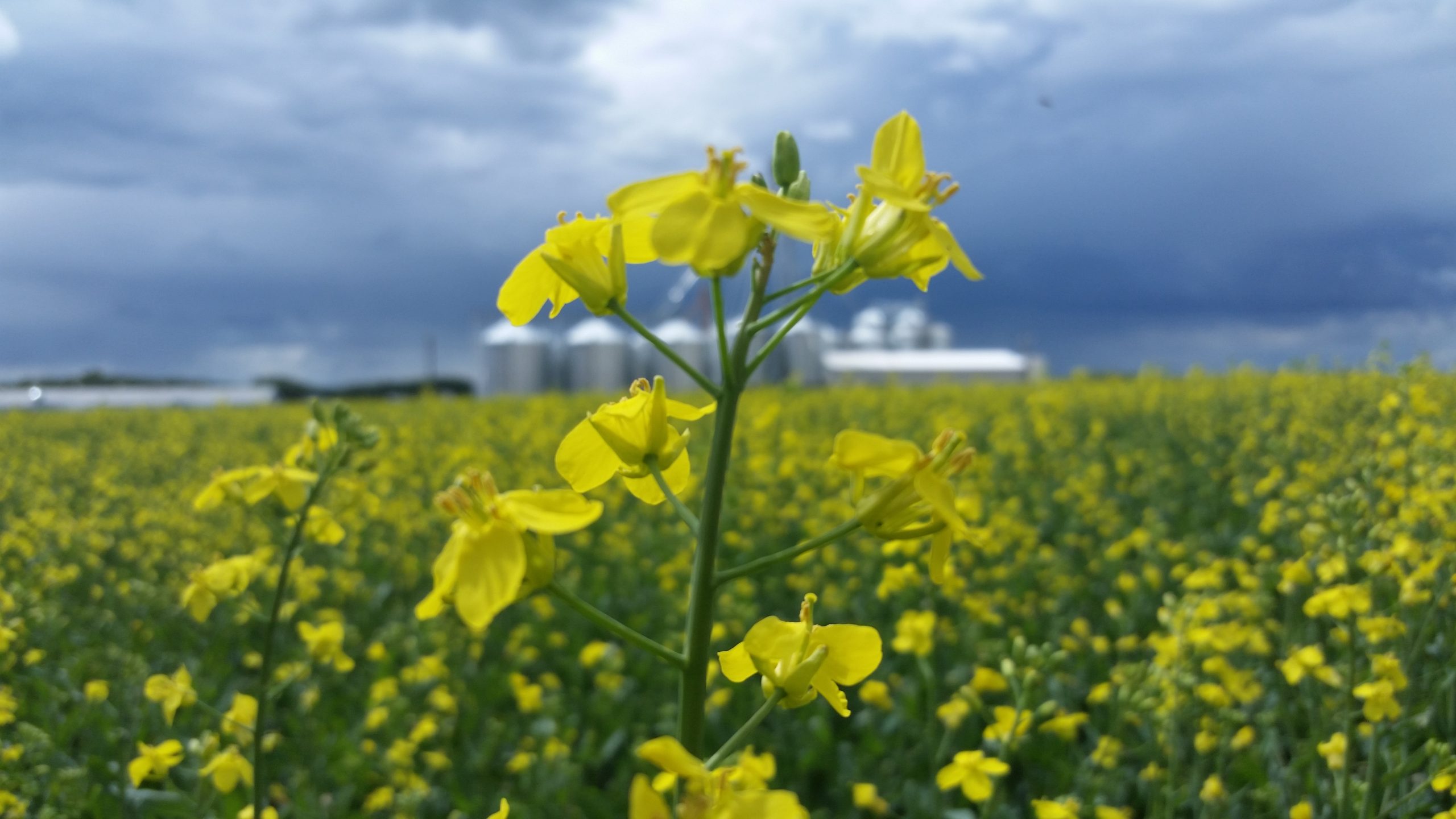Not every oil processing mill can claim to have built its own modern, efficiency-driven facility, using the talent and skill sets of its employees. And no other mill in Canada has the distinction of using state-of-the-art equipment to provide the largest volume of cold-pressed canola and sunflower oil around.
Pleasant Valley Oil Mills is a farmer-owned company in central Alberta, Canada, that’s making a splash with its premium canola product. Traceable from farm to table, the Non-GMO Project Verified cold pressed canola oil is produced using a unique technology with minimal processing—resulting in a cleaner, better-tasting product retaining high nutrient levels that promote heart health. With a capacity of over 7,000 metric tons per year, Pleasant Valley can supply bulk quantities, giving manufacturers an opportunity to include a premium canola ingredient in their pet foods, bakery goods, sauces, etc. Custom crushing and private labeling are an option. The Southeast Asia market and some African countries (Nigeria, for example) are strong buyers, purchasing 40-foot container loads of three and five liter bottles.
Community-centered ethos
A unique feature of Pleasant Valley Oil Mills is its origin in the Hutterite community—a Christian communal colony with European roots—who typically live on farms averaging 7,000 acres, growing vegetables, raising hogs and cattle, and often running egg and dairy operations. Over 500 colonies exist in Canada, with about 45 in central Alberta. Hutterites have a reputation for high quality products; Pleasant Valley Oil Mills began in 2015 from a desire to process canola and sunflower oil and meal to supply other colonies as well as outside markets. Realizing cold pressed oil is better for health, they built a modern-technology mill designed for minimal labor, using their own skills as electricians, plumbers, builders, etc.
“In addition to providing consistent product for themselves and other colonies, they saw the value of a premium, value-added product,” said Kyle Makila, president of global sales. Non-GMO canola seeds are sourced from the colony’s own farm and from local growers. In addition to Non-GMO Project certification in 2017, the products carry the highest food safety standard—FSSC22000—desired by private labels and multinationals.
Why canola? Why cold pressed?
“Canola” derives from “Canada” plus “ola” (oil). It was developed in Manitoba, from crossbreeding an erucic acid rapeseed variety, a member of the brassica family. It contains the lowest saturated fat in all commercial oils: 7% in canola, 14% in olive oil. Canola is the largest crop in Canada, most of it genetically modified. Touted as heart-healthy, canola oil contains zero trans-fat, low sat fat, omega 3s & 6s, tocopherols, phytosterols, and carotenoids. Pleasant Valley’s is free of bleach, hexane, and deodorizers, additives, and preservatives.
“How we put our processing system together is unique to Pleasant Valley—temperatures, drying, filtration and so on,” Kyle said. “Cold pressing creates a less processed product, and extraction is more efficient due to the technology. No one is close to our capacity or certification levels. We give up some yield, but get a healthier oil. And our oils require less energy and transport to produce.”
The most popular product is the 500 milliliters to 1-liter glass bottled non-GMO canola oil. Canola is frequently used for frying, and often as a component in bakery goods and dressings. The company sells both non-GMO and GMO canola oil and meal, with 75% non-GMO. Ninety percent of demand is for non-GMO oil and meal; most is used for pet and human consumption. Sunflower oil is exclusively for the pet food market.
Global market goals
An attractive market exists for plant-based protein, and Pleasant Valley’s non-GMO canola meal fits into that sector nicely. “For reasons of sustainability, environment, and dietary health, the protein market is massive,” Kyle said. “Our cold pressed products, made without chemicals, create a functional, denatured protein in demand for animal feed, food and cosmetic products, and other industries. We’re investing heavily in this market to develop final product, from meal to protein—and working with the University of Alberta to develop nutritional supply ingredients, refining how to extract the proteins, fibers, and oil remaining in the meal.”
The next six months, the company will focus on the Canadian and North American markets. Ongoing penetration in global markets is also a priority: building networks, distribution channels, and brand awareness through educating buyers on the benefits of cold pressed canola oil. Down the road, the company hopes to work with other primary ingredients— chickpeas, for example—to add other value-added, vertically integrated products for other colonies to sell. “Pleasant Valley Oil Mills offers a business model the other colonies can use,” Kyle said. “It helps bridge the gap between grower and manufacturer.”
The Hutterite commitment to cleanliness, quality, health, and sustainability overlays every aspect of life on the colony. “They would never think of selling their farm, everything they do is for the long-term,” Kyle noted. “They’re thinking generations ahead, and wouldn’t offer to market anything less than they’d produce for their own use.”









